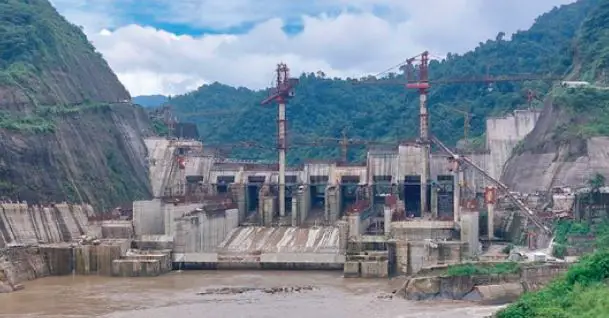The implementation of the 2,000 Mega Watt Subansiri Lower Hydroelectric Project in Arunachal Pradesh and Assam, India, is well underway. Recently, the construction of the associated dam to the top level of Elevation Level (EL), 210 m was completed in all blocks.
This comes approximately a month after the country’s Ministry of Power visited the project’s sites to assess its progress. Led by Union Minister for Power and New and Renewable Energy R K Singh the ministry ascertained that the project had achieved significant progress in dam concreting.
Reportedly, at the time, 14 blocks had been constructed to the top level of 210 meters. The remaining two blocks were slated to be completed by June 2023.
Work done so far and expectations for the project
According to NHPC Limited, more than 90 per cent of the total work has now been completed. NHPC is the contractor in charge of the implementation of the Subansiri Lower Hydroelectric Project in India
“The construction of all major components is fast progressing towards completion. These components include the Dam, the Power House as well as the Hydromechanical Works. We expect to complete the construction of the radial gates after the monsoon season.
Also Read: Subansiri Hydroelectric Power Project and all you need to know
Electricity generation, on the other hand, should begin by the end of the 2023-24 Financial Year,” revealed the Indian Ministry of Power.
Once operational, the Subansiri Lower Hydroelectric Power Plant will generate approximately 7,500 million kilowatt-hours of power annually, in a 90 percent-dependable year.
The start and development of the Subansiri Lower Hydroelectric Project in India
NHPC Limited commenced the execution of the Subansiri Lower Hydroelectric Project in January 2005. This was after it obtained forest clearance on October 12, 2004.
However, the implementation of the project stalled from December 2011 to October 2019. Reportedly, this was due to agitations and protests by local stakeholders. Work resumed on October 15, 2019, after the clearance by National Green Tribunal (ANI).

Leave a Reply